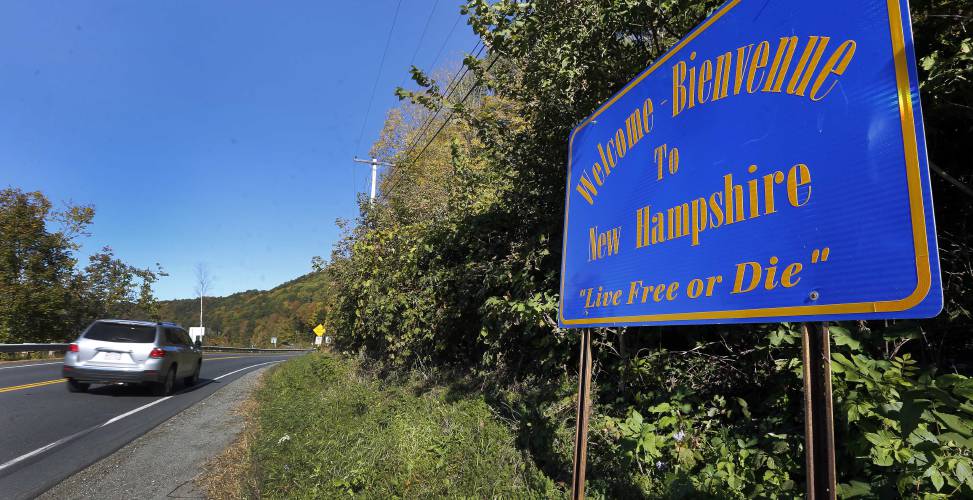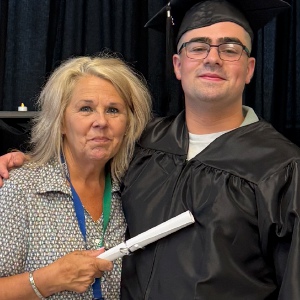Granite Geek: Scrambling to save the 603 area code, yet again

In this Thursday Oct. 8, 2015, photo, a sign welcoming visitors in both English and French is seen across the border from Vermont in Cornish, N.H. (AP Photo/Jim Cole) Jim Cole
| Published: 02-21-2024 12:18 PM |
New Hampshire loves our 603 area code, even though area codes mean less and less in this cellphone-number-portability world, and for 30 years we’ve been freaking out about reports that we’re going to “run out of numbers” and will need a second area code.
This seems weird because, in theory, an area code can include 7.7 million different seven-digit phone numbers, even after skipping combinations that aren’t allowed such as exchanges starting with zero, which is far more than we need. But phone numbers are allocated in a very inefficient manner because of how the telephone switching network was constructed in the pre-digital era. Overcoming those inefficiencies explains why New Hampshire has been told several times since 1990 that 603 was getting full, only to be told later on that there was room for more numbers after all.
Last fall Gov. Sununu, who knows a good political stand when he sees one, issued an executive order telling state regulators to “investigate durable strategies … for lengthening the useful life of the 603 Area Code.” That’s popular but not necessarily effective: phone numbers are overseen by the Federal Communications Commission, not individual states.
Still, we’re trying. As WMUR reports, a hearing was held Tuesday on a bill telling the state to do everything it can to extend the life of 603. That includes “things like doing a full inventory of all the phone numbers in the state and making sure blocks of numbers that are not being used are made available again,” which are useful and intelligent actions that could help convince the FCC to hold off.
Area codes were created as part of the North American Numbering Plan in 1947 to standardize phone systems and allow interconnection while keeping phone numbers unique. Its rules determine how carriers dole out phone numbers in geographic areas covered by phone exchanges, which are the first three digits of a seven-digit phone number.
The original switched-network design of the telephone system meant that each exchange had 10,000 potential phone numbers, corresponding to the final four digits of the phone number, from 0000 to 9999. The problem is that technology required the 10,000 numbers to be handed out as a big block, even if there weren’t enough customers in the service area to need them, meaning many numbers were unused.
In recent years, the system has been improved so that all 10,000 don’t have to be handed out at once, but we’re still not able to hand out numbers one at a time. New Hampshire is one of several states that has asked the Federal Communications Commission to allow far more efficient assigning of phone numbers.
Article continues after...







 ‘It’s the first thing I’ve ever accomplished’: Graduates celebrate completing Second Start’s Adult Diploma Program
‘It’s the first thing I’ve ever accomplished’: Graduates celebrate completing Second Start’s Adult Diploma Program Inside EFAs: How school vouchers have fueled an enrollment boom at Christian schools across New Hampshire
Inside EFAs: How school vouchers have fueled an enrollment boom at Christian schools across New Hampshire ‘He died for his country’: Pittsfield honors U.S. Marine who lost his life in Vietnam War
‘He died for his country’: Pittsfield honors U.S. Marine who lost his life in Vietnam War ‘The skills to excel’: CTRC graduates prepare to enter the workforce
‘The skills to excel’: CTRC graduates prepare to enter the workforce
